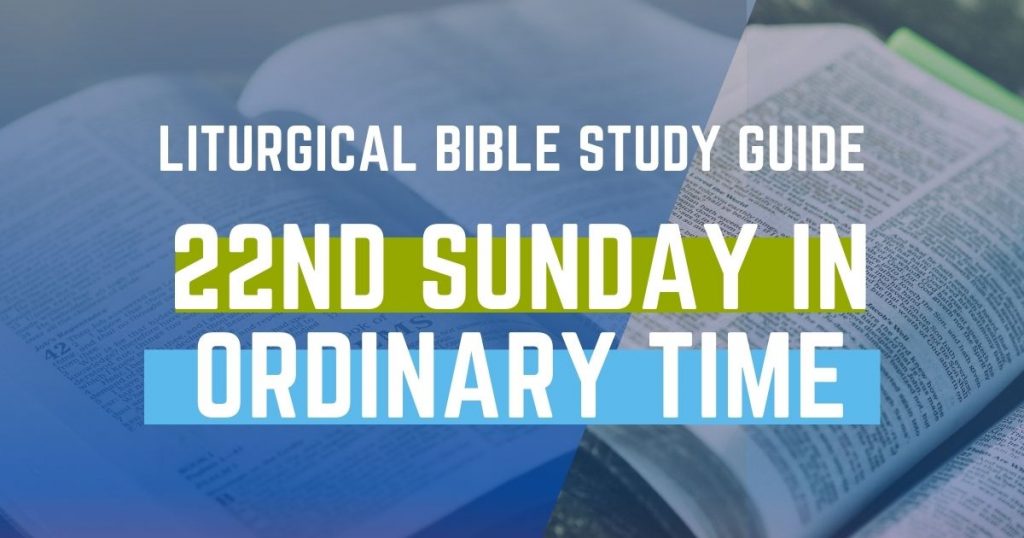1st Reading – Deuteronomy 4:1-2, 6-8
On the plains of Moab, God charges Moses, now close to death, once more to proclaim the Law which he received through the revelation on Mount Sinai. This proclamation is contained in the fifth and last book of the Pentateuch, is called in Hebrew had-debharim (the words) and in Greek deuteronomion (second law). Moses is addressing a new generation of Israelites, all of whom would have been under the age of 20 when the Exodus began. By having the Law restated again, Yahweh is reminding them that His covenant with Israel is made with all generations (29:13), both present and future: it is an everlasting covenant. This proclamation could almost be called an encyclical of Pope Moses – there is no new revelation, only restatement with, in some cases, a relaxation of the requirements.
Today’s reading is taken from Moses’ first address and is called “The Prologue to the Promulgation of the Law to All Israel.”
2nd Reading – James 1:17-18, 21-22, 27
The name James was very common, up to five men are called James in the New Testament:
1) James, son of Zebedee, called “the greater” (Matthew 10:2; Luke 8:51; Acts 1:13; 12:2)
2) James, son of Alphaeus, also an apostle, called “the less” (Matthew 10:3; Mark 3:18; Luke 6:15; Acts 1:13)
3) James, “the brother of the Lord” (Galatians 1:19; Matthew 13:55, Mark 6:3)
4) James, apostle and Bishop of Jerusalem (Acts 12:17; 15:13; 21:18; Galatians 1:19)
5) James, to whom the risen Jesus appeared (1 Corinthians 15:17).
Scholars generally agree that “the brother (cousin) of the Lord” is the Bishop of Jerusalem to whom the risen Lord appeared. This narrows the field down to three Jameses: James the greater, James the less, and James the Lord’s brother and Bishop of Jerusalem.
James the greater was martyred by Herod Agrippa around A.D. 44 (Acts 12:12) and it’s unlikely that he could have been the author of this letter. Regarding the two remaining Jameses, we cannot be sure that they were one and the same person but the likelihood is that they were. In fact Luke and Paul, after the death of James the greater, make reference only to one James, the Bishop of Jerusalem and brother of the Lord (Acts 12:17; Galatians 2:9,12).
In summary, it is fairly clear that the letter was written by James, the Lord’s brother and Bishop of Jerusalem, who was probably also known as James the less, son of Alphaeus, listed in the Gospels as an apostle (Matthew 10:3; Mark 3:18). James the Bishop of Jerusalem was martyred around the year 62 at the instigation of the high priest, Annas II.
Our reading for today comments on our birth in God’s word and appeals for us to be doers of the word.
Gospel – Mark 7:1-8, 14-15, 21-23
After a five week detour on the scenic route (the Gospel of John and Jesus’ Bread of Life Discourse) we return to the Gospel of Mark, rejoining it immediately after Jesus’ walking on water.





